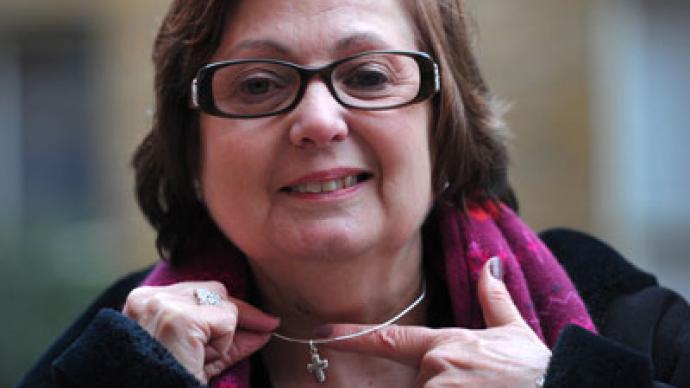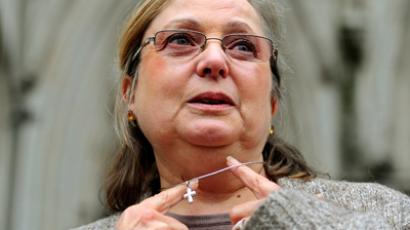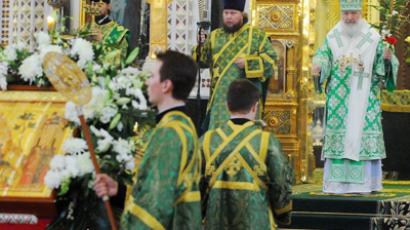Crucifix Battle: British Airways to pay 32,000 euro after sacking woman for wearing cross

The European Court of Human Rights (ECHR) has ruled that British Airways violated an employee’s right to freedom of religion by firing her for wearing a crucifix at work. The Strasbourg court awarded the Coptic Christian 32,000 euros in compensation.
“The domestic authorities failed sufficiently to protect the first applicant’s right to manifest her religion, in breach of the positive obligation under article 9,” the ECHR said in a majority ruling, citing Article 9 of the European Convention of Human Rights, which guarantees freedom of thought, conscience and religion.Nadia Eweida, a practicing Coptic Christian, was awarded €2,000 ($2,665) in compensation by the court after it ruled against an earlier decision by UK courts. A further €30,000 (almost $40,000) was awarded in legal costs. The British Airways check-in clerk was asked to leave her job in 2006 after refusing to remove her crucifix.A UK employment tribunal ruled that Eweida had not been subjected to religious discrimination. However, by the time the court made its ruling, British Airways had already changed its uniform code on visible items of jewelry to allow symbols of faith to be worn. “The fact that the company was able to amend the uniform code to allow for the visible wearing of religious symbolic jewelry demonstrates that the earlier prohibition was not of crucial importance,” the judges said in a comment on British Airways’ police change.The ECHR ruling said the British court had failed to balance the competing issues in Eweida’s case. While the employer wished to protect a certain corporate image, Eweida desired to display her religious beliefs. Though British Airways had a legitimate motive, “the domestic courts accorded it too much weight,” the ECHR’s judgment said. With Eweida’s case as precedent, Strasbourg was not quite so benevolent to another complainant. Shirley Chaplain, a nurse from Exeter, was transferred to a desk job by the Royal Devon and Exeter NHS Trust for refusing to remove a confirmation crucifix she had worn for 30 years. Though the case appears to be almost identical to Eweida’s, the judges ruled unanimously that the British courts had resolved Chaplain’s issue fairly. The ECHR judges ruled that the request by the hospital authorities to remove the cross for reasons of health and safety to prevent the spread of infections “was inherently more important,” and that the hospital was “well placed to make decisions about clinical safety.” UK Prime Minster David Cameron said he was “delighted” by the ECHR’s ruling, and that the “principle of wearing religious symbols at work has been upheld.” But Keith Porteous-Wood of the National Secular Society said the idea of a ban on wearing crosses was “absolutely risible,” because hundreds of thousands of people around the UK wear crosses “with no problem at all.”Porteous-Wood said he was delighted with the ruling because “we don’t want to see a hierarchy of rights with religion at the top.”














